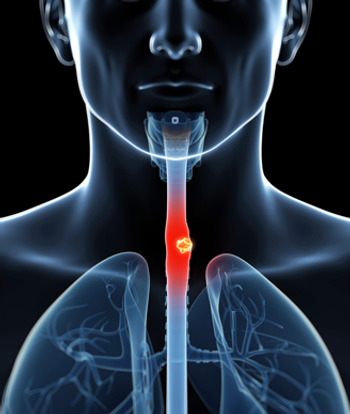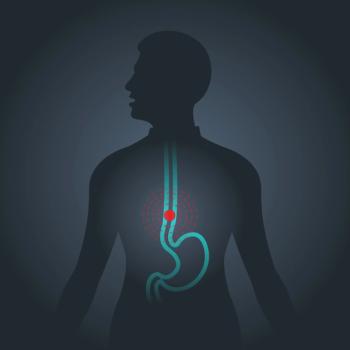
Oncology NEWS International
- Oncology NEWS International Vol 19 No 9
- Volume 19
- Issue 9
Oral Bisphosphonates Not Linked to Esophageal Cancer Risk
Esophagitis is a known adverse effect of bisphosphonate use and reflux esophagitis is an established risk factor for esophageal cancer through the Barrett pathway.
Esophagitis is a known adverse effect of bisphosphonate use and reflux esophagitis is an established risk factor for esophageal cancer through the Barrett pathway.
But the link between bisphosphonates and esophageal cancer has not been fully investigated. A group of international researchers mined data from the world's largest database of longitudinal patient records to assess the incidence of esophageal or gastric cancer in patients taking the drugs used primarily to prevent osteoporosis.
Chris R. Cardwell, PhD, and colleagues looked at records for 83,652 patients from the UK General Practice Research Database who were treated with oral bisphosphonates between January 1996 and December 2006.
Cancers were identified from relevant Read/Oxford Medical Information System codes in each patient's clinical files. Cox proportional hazards modeling was used to calculate hazard ratios for risk of esophageal and gastric cancer in bisphosphonate users compared with nonusers.
The mean follow-up time was 4.5 years in the bisphosphonate cohort and 4.4 years in the control cohort. Eighty-one percent of the 83,652 patients were women with a mean age of 70 years.
In the total patient population, 79 esophageal and 37 gastric cancers occurred in the bisphosphonate cohort. In the control cohort, there were 72 esophageal cancers and 43 gastric cancers.
The incidence of esophageal and gastric cancer combined was 0.7 per 1,000 person-years of risk in both the bisphosphonate and control cohorts, the authors reported. The incidence of esophageal cancer alone in the bisphosphonate cohort was 0.48 per 1,000 person-years of risk and 0.44 per 1,000 person-years of risk in the control group.
There was no difference in risk of esophageal and gastric cancer combined between the cohorts for any bisphosphonate use (adjusted hazard ratio of 0.96) or risk of esophageal cancer only (adjusted hazard ratio of 1.07). There also was no difference in risk of esophageal or gastric cancer by duration of bisphosphonate intake, Dr. Cardwell and colleagues wrote. The group also looked at bisphosphonate subtypes-nitrogen, alendronate, or non-nitrogen-and found no association with cancer risk. (JAMA 304:657-663, 2010).
A limitation of their study was a lack of data on potential confounders. Smoking or a low body mass index (BMI) could increase the risk for esophageal cancer and osteoporosis in bisphosphonate users, while a high BMI may increase the risk for cancer, but lower the risk for bone loss. These confounders could mask cancer risk, although there was not a significant difference in BMI between the two study cohorts, they wrote.
Dr. Cardwell and some of the study co-authors are from the Centre for Public Health at Queen's University Belfast in Ireland. Co-investigator Christian C. Abnet, PhD, is from the nutritional epidemiology branch at the NCI's division of cancer epidemiology and genetics in Rockville, Md.
Articles in this issue
over 15 years ago
PSA test drives diagnosis within familiesover 15 years ago
New RT journal calls for papersover 15 years ago
Ipilimumab put on fast track by FDAover 15 years ago
Who's Newsover 15 years ago
ASTRO releases breast RT guideover 15 years ago
Research chair named after Dr. Salemover 15 years ago
Breast Cancer Specialists Brace for FDA Word on AvastinNewsletter
Stay up to date on recent advances in the multidisciplinary approach to cancer.





































